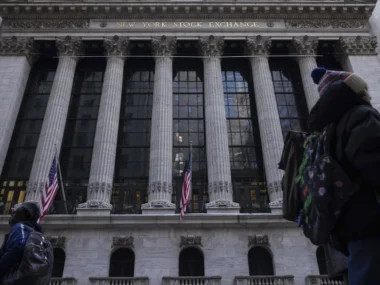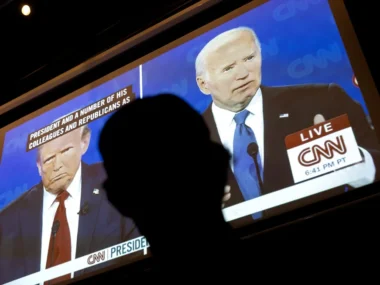The UK and US have agreed on a tariff arrangement affecting certain traded goods.
While most UK exports to the US are still subject to President Donald Trump’s 10% global import tariff, the new agreement cuts or eliminates duties on select UK products such as cars, steel, and aluminium.
Below is a quick overview of the agreement’s contents.
This isn’t a trade deal
Trump called it a “major trade deal” on social media—but that’s misleading. He lacks the power to approve the kind of free-trade agreement that India and the UK just signed; only Congress can do that.
Any formal trade deal would require congressional approval, a process that exceeds the current 90-day suspension on some of Trump’s tariffs.
The current arrangement simply scales back or eliminates certain tariffs on selected products.
What’s been announced is just the basic framework of a limited deal, with extensive negotiations and legal steps still ahead.
Car import tax reduced to 10%
Former President Trump had imposed a 25% tariff on cars and car parts entering the U.S., in addition to the standard 2.5%. This rate has now been lowered to 10% for up to 100,000 vehicles exported from the UK—the same volume shipped last year. Any exports beyond this threshold will face a 27.5% duty.
Cars remain the UK’s largest export to the U.S., generating around £9 billion in value last year. Industry experts told the BBC that the quota could limit how competitively UK manufacturers can export vehicles.
While the UK currently applies a 10% tariff on American car imports, it’s unclear if this rate will change. The U.S. has been pushing for a reduction to 2.5%, and Chancellor Rachel Reeves has signaled she may consider it.
Trump also revealed that Rolls-Royce aircraft engines and parts can now be exported from the UK to the U.S. without tariffs. Additionally, he confirmed that the UK is purchasing $10 billion worth of Boeing aircraft from the U.S.
Steel and aluminium will not be subject to tariffs.
A 25% tariff on steel and aluminium imports to the US, which was introduced in March, has been lifted as part of this agreement.
This is a significant development for companies like British Steel, which had to be placed under government control due to financial struggles.
The UK exports a relatively small amount of steel and aluminium to the US, totaling around £700m.
However, the tariffs also applied to products made from steel and aluminium, such as gym equipment, furniture, and machinery.
These products are worth much more, approximately £2.2bn, or around 5% of UK exports to the US last year.
It remains uncertain whether the tariff removal will include steel derivative products or if only steel melted and poured in the UK will benefit.
The status of pharmaceuticals remains uncertain.
The terms for pharmaceuticals are still unclear.
“Discussions will continue on remaining sectors, including pharmaceuticals and outstanding reciprocal tariffs,” stated the UK government.
Most nations, including the US, impose few or no tariffs on finished pharmaceuticals to maintain affordable access to medicines.
Pharmaceuticals are a key export for the UK in US trade, with sales of medicinal and pharmaceutical products valued at £6.6bn ($8.76bn) last year, making it the UK’s second-largest export to the US.
It’s also the fourth-largest US export to the UK, valued at £4bn ($5.3bn) last year.
The president has not yet announced any trade restrictions on medicines.
There is no update on the digital services tax.
The UK’s 2% digital services tax on US firms remains unchanged in this agreement, despite earlier reports suggesting potential adjustments.
The tax applies to businesses running social media, search engines, or online marketplaces, and is based on revenue generated from UK users.
Only companies with more than £500m in global revenue and £25m from UK users annually are required to pay, a threshold easily met by US tech giants like Meta, Google, and Apple.
In its first year, the UK reportedly collected nearly £360m from American tech firms through this tax.
Instead of modifying the digital services tax, the UK and US have agreed to focus on creating a digital trade deal, according to the UK government. This deal aims to reduce bureaucracy for British firms exporting to the US, opening up significant market opportunities that could significantly boost the UK economy.
There will be no reduction in food standards.
The UK has lifted tariffs on American beef and other agricultural products, as announced by Trump. Additionally, UK farmers have been granted a tariff-free quota for 13,000 metric tonnes of exports, marking the first such deal for British farmers, according to trade ministers.
The UK government confirmed that food standards for imports will remain unchanged.
Many American farmers use growth hormones in beef production, a practice banned in the UK and the EU since the 1980s. The US had previously advocated for loosening regulations on agricultural imports, including hormone-treated beef.
However, the UK has opted to align its regulations with the EU, particularly regarding the upcoming “Brexit reset” with the EU, rather than relaxing rules for the US.
The tariff on ethanol, used in beer production, imported from the US has also been eliminated. Trump added that American goods would be fast-tracked through UK customs, ensuring quicker approval and eliminating red tape.











